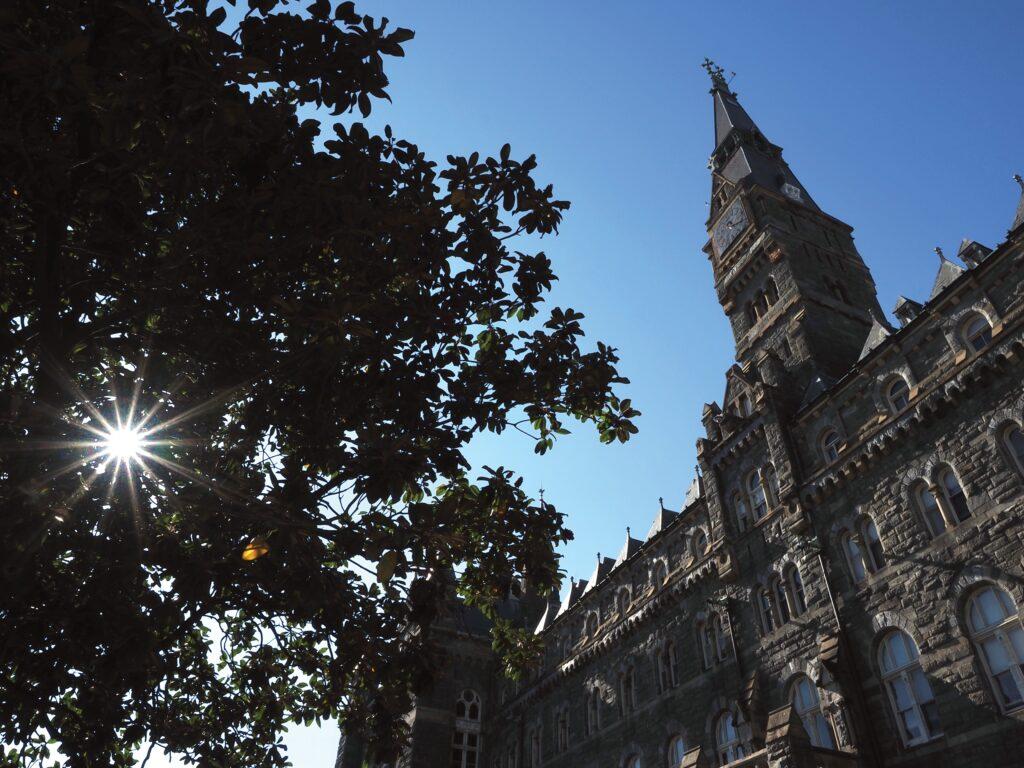The Georgetown University Student Association (GUSA) launched efforts to create a national consortium of university student governments to increase interscholastic activism.
The National College Consortium, a proposal GUSA President Nile Blass (COL ’22) spearheaded, along with GUSA Executive Officials Genevieve Grenier (MSB ’24) and Thomas Leonard (COL ’23), will organize around regional and national issues important to college students. In the organizers’ vision, the consortium will include public, private and two-year higher education institutions from across the country and has already confirmed membership from 10 universities.
The consortium’s immediate agenda will include supporting federal voting rights legislation and student loan forgiveness, according to Grenier.
“There’s a lot of issues that we do align with the interests of other universities on, for example, voting rights and student loan debt forgiveness,” Grenier said in an interview with The Hoya. “There’s no body that brings together all the public, private, HBCUs, tribal colleges, every type of university from across the country. I think there’s 20 million college students on American campuses — so that means there’s a lot of political power.”

Student governments at American University; Howard University; Gallaudet University; the University of Maryland; the University of Mississippi; the University of Iowa; the University of California, Los Angeles; Princeton University; Harvard University and Yale University have signed on, according to Blass. The organization will publish a website Nov. 19.
Currently, many colleges and universities around the country participate in administrative consortiums to share resources and promote advocacy. Georgetown participates in the Consortium of Universities of the Washington Metropolitan Area, a group of local university administrations that collaborate around educational and financial resources.
The National College Consortium will also aim to elevate historically underrepresented voices from HBCUs, public and private universities and tribal colleges, according to Blass.
Existing administrative consortiums are often only among university administrations and do not include student governments and marginalized voices, according to Blass, which is why GUSA is intentionally diversifying participating higher education institutions.
“We’re talking about demographic differences,” Blass said in an interview with The Hoya. “We still want to have it definitely based on student activism and student voices. We want to make sure that — it’s Georgetown starting this, obviously — but we don’t want this to just be Georgetown.”
Blass’s fall 2021 GUSA Executive campaign platform included a promise to pursue a national college consortium. The GUSA Executive branch introduced the idea to the GUSA Senate at a Nov. 7 meeting and is currently leading efforts to organize the consortium.
According to Rowlie Flores (COL ’22), vice speaker of the GUSA Senate, the consortium will hopefully help GUSA and university administrators better recognize and accommodate students belonging to disenfranchised groups at Georgetown.
“As student leaders in this university, we have to recognize that some of the issues we face are also felt by other universities, so there’s always a benefit to sharing resources and input,” Flores wrote in an email to The Hoya. “We have to be cognizant of the fact that Georgetown’s student body leans toward backgrounds of socioeconomic privilege and the consortium allows us to learn from leaders in HBCUs, state and public universities, community colleges, and colleges serving historically marginalized communities.”
The National Consortium has not met as a group yet; however, Blass and other GUSA Executive members plan to meet with other representatives of the consortium Dec. 4 over Zoom to discuss expanding the consortium and future plans for the organization.
While Blass and members of the GUSA Executive are currently focused on expanding the organization’s membership, the group hopes that in the future the national consortium will be a launching point to negotiate with both state and local governments and, eventually, federal officials. However, GUSA will continue to work on issues pertaining specifically to Georgetown in addition to working on the consortium, according to Blass.
Blass hopes the National College Consortium will spur united local and national university advocacy.
“There are so many problems that go beyond our campus that we are in a position to meaningfully facilitate and support, that I see no reason to say that just because we’re part of the DMV, that means that we shouldn’t be working to organize and help elevate the voices of other people,” Blass said.




















